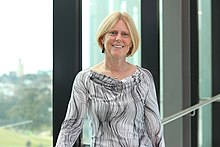
Melissa Little
Murdoch Children’s Research Institute
Australia
EMBO | EMBL Symposium
This conference will take place at EMBL Heidelberg, with the option to attend virtually.
The ability to grow human tissues from stem cells in 3D culture has the potential to revolutionise the drug discovery process and regenerative medicine. Building on a long tradition of cell and developmental biology knowledge, organoids resembling a variety of human tissues have been generated. This conference will bring together the leading researchers in this field to establish a new research community and reveal parallels between various tissue models. The aim of this meeting is to bring together researchers from different fields to enhance our understanding of how organoids can be formed and maintained, how they can be used to study disease and how we might eventually use them to regenerate and replace human organ tissue
“Organoid biology is all about interaction across multiple disciplines and methods. The
EMBO | EMBL Symposium has been a wonderful venue for hosting such cross-talks.” – Francesco Cambuli, Columbia University, USA
“This conference was a great oppotunity to bring together experts on the organoid field, creating an important network for future collaborations.” – Veronica Foletto, University of Trento, Italy
“This symposium was one of the best conferences I attended so far. Beside the location and networking possibilities I would like to emphasize the great choice of speakers and posters. The presented data and new applications were astonishing and represented the development of organoid field very nicely. Thank you very much for the organization of such a great symposium.” – Thomas Däullary, Julius-Maximilians-Universität of Würzburg, Germany
Please see EMBL’s COVID-19 safety recommendations if attending the on-site event.

Murdoch Children’s Research Institute
Australia
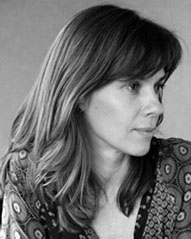
University of Cambridge and California Institute of Technology
UK and USA
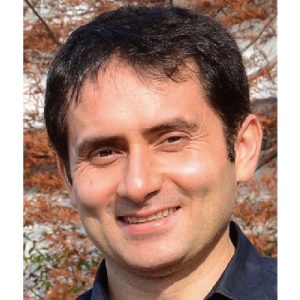
Remote speaker
Kyoto University
Japan
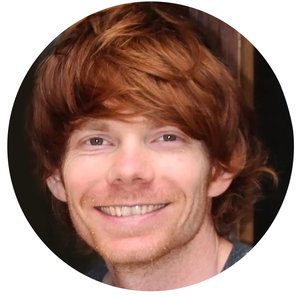
University of Basel
Switzerland
Max Planck Institute of Psychiatry
Germany

F. Hoffmann-La Roche Ltd, Switzerland
Switzerland
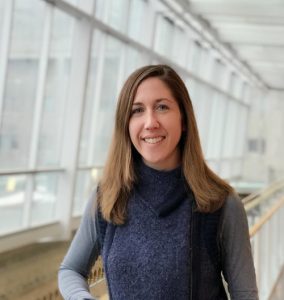
University of Toronto
Canada
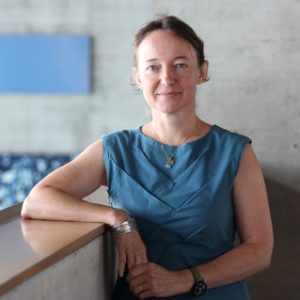
Max Planck Institute of Molecular Cell Biology and Genetics
Germany
Newcastle University and Wellcome Sanger Institute
UK
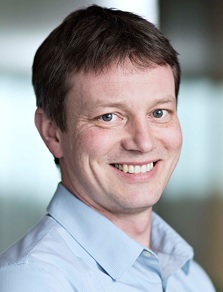
University of Copenhagen
Denmark
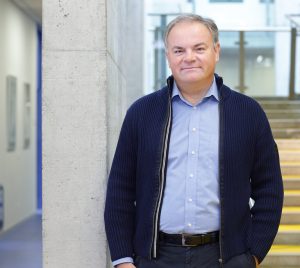
Institute of Molecular Biotechnology (IMBA)
Austria

University of Cambridge
UK
Institute of Molecular Biotechnology
Austria
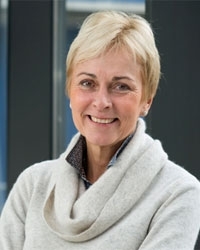
Leiden University
The Netherlands
Helmholtz Centre for Infection Research
Germany
Princess Máxima Center
The Netherlands
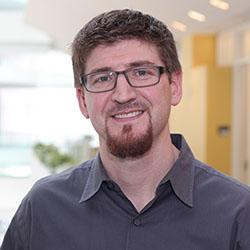
University of Michigan
USA
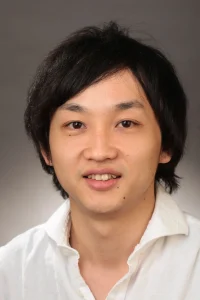
Cincinnati Children’s Hospital Medical Center
USA
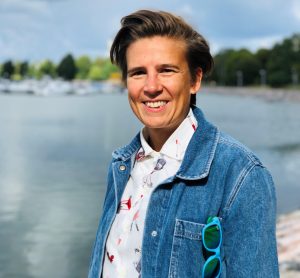
Max Planck Institute for Molecular Biomedicine
Germany
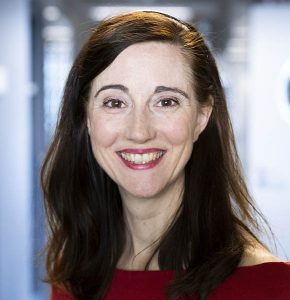
Max Planck Institute of Molecular Cell Biology and Genetics
Germany
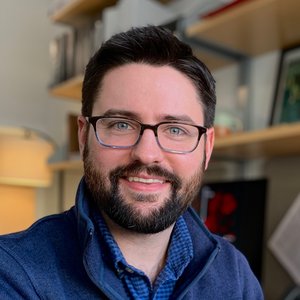
Boston Children’s Hospital and Harvard Medical School
USA
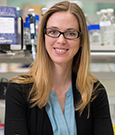
MRC Laboratory of Molecular Biology
UK
Got something to say? Tweet it! #EESOrgan
| Time (Europe/Berlin) | Speaker |
|---|---|
| 14:00 – 16:00 | Registration and light refreshments |
| 14:30 – 15:30 | Pre-conference workshops with Amsbio, Carl ZEISS, Evident, STEMCELL, TakaraBio More information will be shared closer to the conference |
| 16:00 – 16:15 | Opening remarks by Esther Schnapp |
| 16:15 – 18:50 | Session 1: Concepts from development and evolution Session Chair: Madeleine Lancester – MRC Laboratory of Molecular Biology, Cambridge, UK |
| 16:15 – 16:40 | Charting human development with organoid single-cell technologies Gray Camp – University of Basel, Switzerland Not available on demand |
| 16:40 – 16:55 | The emergence of “actin stars” for epithelium coordination and tissue patterning Amlan Barai – Institut de Biologie du Développement de Marseille (IBDM) – CNRS & Aix-Marseille University, France Not available on demand |
| 16:55 – 17:10 | Morphogen stepwise temporal gradient-driven neural induction shapes brain organoid development into a single expanded neuroepithelium with enhanced cortical identity Anna Pagliaro – Prinses Maxima Centrum, The Netherlands Not available on demand |
| 17:10 – 17:40 | Coffee Break and Meet the speakers |
| 17:40 – 18:05 | Human iPSC Intestine Mimetics co-differentiated with Mesenchymal, Endothelial and Enteric Nervous Tissue Jason Spence – University of Michigan, USA Not available on demand |
| 18:05 – 18:20 | Modulation of human placental development by uterine Natural Killer cells: new insights using trophoblast organoids Elisa Magistrati – Friedrich Miescher Institute for Biomedical Research, Switzerland Not available on demand |
| 18:20 – 18:35 | Multimodal signal integration for tissue-scale decision making Cornelia Schwayer – Friedrich Miescher Institute for Biomedical Research, Switzerland Not available on demand |
| 18:35 – 18:50 | Cell type tracking in intestinal organoids reveals ‘commit-then-sort’ differentiation model Sander Tans – AMOLF institute, The Netherlands |
| 18:50 – 19:35 | Keynote Lecture: Extending what we know about kidney organoids to deliver on disease modelling and tissue engineering Melissa Little – Murdoch Children’s Research Institute, Australia |
| 19:35 – 21:05 | Dinner in Canteen |
| 21:05 – 23:00 | After dinner drinks |
| Time (Europe/Berlin) | Speaker |
|---|---|
| 09:00 – 12:05 | Session 1: Concepts from development and evolution (cont) Session Chair: Meritxell Huch – Max Planck Institute of Molecular Cell Biology and Genetics, Germany |
| 09:00 – 09:25 | Decoding the developing human immune system Muzlifah Haniffa – Newcastle University and Wellcome Sanger Institute, UK |
| 09:25 – 09:40 | Human Pluripotent Stem Cells-Derived Inner Ear Organoids Recapitulate Otic Development In Vitro Marta Roccio – University Hospital Zurich, Switzerland Not available on demand |
| 09:40 – 09:55 | Fueling Cellular Transformation: Insulin’s Dynamic Role in Generating Airway and Alveolar Lung Organoids from Endodermal NKX2.1 Cells Mirian Romitti – Université libre de Bruxelles (ULB), Belgium |
| 09:55 – 10:25 | Coffee Break and Meet the speakers |
| 10:25 – 10:50 | Organoids to probe infections Josef Penninger – Helmholtz Centre for Infection Research, Germany |
| 10:50 – 11:05 | Recapitulation of human early embryonic development in artificial micro-environments from notochord to gastrula Zhe Wang – Kyoto University, Japan |
| 11:05 – 11:20 | Spatial and temporal regulation of cell-cell fusion in human placenta Veronica Farmer – Duke University, USA |
| 11:20 – 12:05 | Keynote Lecture: To be presented on-site Magdalena Zernicka-Goetz – California Institute of Technology, USA Not available on demand |
| 12:05 – 13:30 | Lunch |
| 13:30-16:25 | Session 2: Building organoid complexity Session Chair: Kim Bak Jensen – University of Copenhagen, Denmark |
| 13:30 – 13:55 | Self-organization in pancreas organoids: formation of complex ductal networks Anne Grapin-Botton – Max Planck Institute of Molecular Cell Biology and Genetics, Germany Not available on demand |
| 13:55 – 14:10 | Complex intestinal organoid models to study immune-epithelial interactions Joana F Neves – King’s College London, United Kingdom |
| 14:10 – 14:35 | Overcoming challenges of brain organoids to uncover what it means to be pluripotent Madeline Lancaster – MRC, Cambridge, UK |
| 14:35 – 15:05 | Coffee Break and Meet the speakers |
| 15:05 – 15:30 | Reconstituting human axial development with axioloids Cantas Alev – Kyoto University, Japan Not available on demand, remote talk |
| 15:30 – 15:45 | Differentiating stem cells one at a time in 3D reveals how the dynamical build-up of local microniches controls tissue organisation in gastruloids and bile duct organoids Virgile Viasnoff – National University of Singapore, Singapore |
| 15:45 – 16:00 | Design and control of in vitro microenvironments with simple CUBE device to achieve organoid architecture Masaya Hagiwara – RIKEN, Japan |
| 16:00 – 16:25 | Multi-chamber cardioids unravel human heart development and cardiac defects Sasha Mendjan – Institute of Molecular Biotechnology, Austria |
| 16:25 – 16:45 | Flash talks #52 Reconstructing the development of fetal insulin producing enteroendocrine cells Akkerman, Ninouk #74 Light dependent modulation of microRNA expression in human retinal organoids Celiker, Canan #91 Developing an immunocompetent in vitro 3D brain model of alzheimer’s disease to study the neuroprotective effects of estrogen Demetriou, Aphrodite #112 Supracellular contractility of fibroblasts in homeostasis, injury, and wound healing Glisovic, Neda #181 Ex utero cell derived model of the human post implantation embryo development Bondarenko, Vladyslav #183 Microfluidics driven tissue patterning of neural organoids Park, JiSoo #219 Local tissue mechanics controls homeostatic live cell extrusion in the small intestine Spoelstra, Willem Kasper #243 Communication of cellular fitness in intestinal organoids van Luyk, Merel #245 Bacterial infection of intestinal organoids von Peinen, Kristin |
| 16:45 – 18:45 | Poster Session 1 (odd) with beer and snacks View poster listing here |
| 18:45 | Free evening |
| Time (Europe/Berlin) | Speaker |
|---|---|
| 09:00 – 12:00 | Session 3: Organoids from adult stem cells Session Chair: Penney Gilbert – University of Toronto, Canada |
| 09:00 – 09:25 | Organoids to model human disease Hans Clevers – F. Hoffmann-La Roche Ltd, Switzerland Not available on demand |
| 09:25 – 09:40 | PIEZO-dependent mechano-sensing of the niche is essential for intestinal stem cell fate decision and maintenance Meryem B. Baghdadi – Institut Curie, France |
| 09:40 – 09:55 | Multilineage liver organoids recapitulate aspects of the liver peri-portal region and faithfully model cholestatic liver disease Aleksandra Sljukic – Max Planck Institute of Molecular Cell Biology and Genetics (MPI- CBG), Germany Not available on demand |
| 09:55 – 10:25 | Coffee Break and Meet the speakers |
| 10:25 – 10:40 | Intestinal organoid and organ-on-chip models to recapitulate celiac disease pathophysiology Sebo Withoff – University Medical Center Groningen, The Netherlands Remote speaker |
| 10:40 – 10:55 | Host response to Pseudomonas aeruginosa and Staphylococcus aureus in an ex vivo human airway model of cystic fibrosis Pawan Parajuli – Commonwealth Scientific and Industrial Research Organisation (CSIRO), Australia |
| 10:55 – 11:20 | Regulation of stem cell dynamics through niche-derived signals and forces Sara Wickström – Max Planck Institute for Molecular Biomedicine, Germany Not available on demand |
| 11:20 – 11:45 | Esther Schnapp – Editor Talk: Transparent Publishing at EMBO Press |
| 11:45 – 13:30 | Lunch |
| 13:30 – 16:25 | Session 4: Organoids in regenerative medicine/therapy Session Chair: Anne Grapin-Botton – Max Planck Institute of Molecular Cell Biology and Genetics, Germany |
| 13:30 – 13:55 | Understanding interconnectedness in liver development and disease Takanori Takebe – Cincinnati Children’s Hospital Medical Center, USA, Not available on demand |
| 13:55 – 14:10 | Golgi organization is a determinant of stem cell function in the small intestine Sandra Scharaw – Karolinska Institutet, Sweden Not available on demand |
| 14:10 – 14:35 | Skin organoids for developmental modeling and therapy Karl Koehler – Boston Children’s Hospital and Harvard Medical School, USA Not available on demand |
| 14:35 – 15:05 | Coffee Break and Meet the editors and Meet the speakers |
| 15:05 – 15:30 | In silico predictions coupled with the mini-IDLE predictive assay identifies myofiber-derived biomolecules dictating muscle stem cell return to quiescence Penney Gilbert – University of Toronto, Canada |
| 15:30 – 15:45 | Generation of complex human induced pluripotent stem cell-derived bone marrow organoids to model hematopoietic development and disease Stephanie Frenz-Wiessner – Dr. von Hauner Children’s Hospital, Ludwig-Maximilians-University Munich, Germany Not available on demand |
| 15:45 – 16:00 | Cerebral organoids display dynamic clonal growth with lineage replenishment Christopher Esk – University of Innsbruck, Austria |
| 16:00 – 16:25 | Cardiovascular diseases and drugs: where are we with hiPSC models? Christine Mummery – Leiden University Medical Centre, The Netherlands Not available on demand |
| 16:25 – 16:45 | Flash talks #106 iPSC derived human organoid based model of intestinal filovirus infection Flores, Elizabeth Yvonne #164 Volumetric compression by heterogeneous scaffold embedding promotes cerebral organoid growth and maturation Ma, Shaohua #172 Generation and characterization of microglia containing human forebrain assembloids Michels, Susanne #220 Covalent tracking of DNMT1 specific activity in lung cancer spheroids Stankevicius, Vaidotas #236 Collective organization of circadian rhythms in murine intestinal organoids Tonin, Elena #238 Screening gastric cancer patient derived organoids develops the first in class anti invadopodia therapeutic antibody Tsai, Kelvin Kunchih #242 Exploring human inner ear organoids: Single cell analysis of oto-pharyngeal development and comparative profiling to human inner ear tissue across developmental stages van der Valk, Wouter #254 Differentiated tubuloids to model human distal nephron (Patho)Physiology Pou Casellas, Carla |
| 16:45 – 18:45 | Poster Session 2 (even) with beer and snacks View poster listing here |
| 18:45 – 21:00 | Conference dinner in the canteen |
| 21:00 – 00:00 | Party with Who2Ladies |
| Time (Europe/Berlin) | Speaker |
|---|---|
| 09:00 – 12:25 | Session 5: Organoids in disease modeling Session Chair: Karl Koehler – Boston Children’s Hospital and Harvard Medical School |
| 09:00 – 09:25 | Guiding Intestinal Stem Cell Fate Kim Bak Jensen – University of Copenhagen, Denmark Not available on demand |
| 09:25 – 09:40 | Salmonella Typhimurium and Shigella flexneri use alternative virulence strategies to colonize the human enteroid and colonoid epithelium Petra Geiser – Uppsala University, Sweden |
| 09:40 – 09:55 | Extracellular signaling in neurodevelopmental disorders Silvia Cappello – Ludwig Maximilian University of Munich, Germany Not available on demand |
| 09:55 – 10:25 | Coffee Break and Meet the speakers |
| 10:25 – 10:50 | Organoid cellular cancer immunity models in motion Anne Rios – The Princess Maxima Center of Pediatric Oncology |
| 10:50 – 11:05 | RFX6 Regulates Human Intestinal Patterning and Function J Guillermo Sanchez – Cincinnati Children’s Hospital, United States of America |
| 11:05 – 11:30 | Liver organoids to study regeneration and cancer across biological scales Meritxell Huch – Max Planck Institute of Molecular Cell Biology and Genetics, Germany Not available on demand |
| 11:30 – 11:45 | Isogenic patient-derived organoids reveal early neurodevelopmental defects in spinal muscular atrophy initiation Natalia Rodriguez-Muela – German Center for Neurodegenerative Diseases (DZNE), Germany |
| 11:45 – 12:10 | Genetic screening and neural network pathology in cerebral organoids Jürgen Knoblich – Institute of Molecular Biotechnology (IMBA), Austria Not available on demand |
| 12:10 – 12:25 | Closing Remarks and Poster Prize Announcement |
| 12:25 – 12:45 | Packed Lunch and departure |
| 12:45 | Airport shuttle to terminal 1 (30 EUR), tickets may be purchased on-site |
On-site registration fees include admission, conference materials, meals and coffee breaks. Participants are expected to book and pay their own accommodation and travel expenses.
Virtual registration fees include access to all of the talks (livestreamed and on demand) and facility to submit questions.
| On-site Academia | €700 |
| On-site PhD Student | €600 |
| On-site Industry | €900 |
| Virtual Academia | €200 |
| Virtual PhD Student | €150 |
| Virtual Industry | €250 |
A letter to support your visa application will be issued, on request, once payment of the registration fee is confirmed. We recommend that you book your visa appointment as soon as possible, to avoid any delay with your visa application.
Accredited journalists may be eligible to register for complimentary press registration. Registrants may be required to provide accreditation or equivalent proof of press membership after registration. Please contact Lea Hohmann for more information. Please note that we do not offer complimentary registrations for editors of scientific journals.
Registration will be on a first come, first served basis. Your place can only be confirmed after payment of the registration fee. If you are added to our waiting list, please consider taking advantage of our offerings to participate virtually.
On-site participants: Types of payments accepted are international bank transfers and credit card payments.
Virtual participants: We are only able to accept card payments. In exceptional cases we can accept bank transfers. Please contact events@embl.de for details.
Only participants registering to attend the on-site event are eligible to submit an abstract. Abstracts will not be accepted from virtual participants.
After registration you can submit your abstract via a separate link that will be provided in the email confirmation. Alternatively, you can access the link on the confirmation page directly after registering. The same login credentials are used for both processes.
Please note:
Abstract body: The limit of 2000 characters refers to manually typed text and excludes spaces. If an error occurs try using a different web browser (preferably Google Chrome or Mozilla Firefox).
If you copy-paste the text into the form, hidden formatting might still be included which may cause the text to exceed the 2,000 character limit resulting in an error message. We recommend you clear all formatting before pasting in the text.
If you have special symbols in your text, make sure you are using Unicode characters, otherwise these will not be recognised.
Title: The title should not exceed 20 words. Only the first word of the title should start with a capital letter and the rest should be lowercase.
Authors and affiliations: Please fill in the author’s details as requested in the online form. The compulsory fields are: First Name, Last Name, Organisation Name (Affiliation or Company), Country and Email.
Kindly mark only one author in the role of First Author and please don’t forget to indicate who will be the Presenter.
Please enter your co-authors correctly via the system by adding accounts together with their organisation/institute. Do not copy-paste them into the body of the abstract text, as they will not be indexed in the abstract book.
Presentation types: When submitting your abstract, you can apply for an oral or poster presentation. A selection process will take place with the results announced 2-3 weeks after the abstract submission deadline.
For detailed instructions on how to submit a conference abstract, follow the instructions provided in this video.
Please check our FAQs pages for further information on how to submit an abstract.
Limited financial assistance is provided by the EMBL Advanced Training Centre Corporate Partnership Programme and EMBO in the form of both registration fee waivers and travel grants. These are available for on-site participants at EMBL Conferences and EMBO|EMBL Symposia, and for on-site and virtual participants at EMBO Workshops. We are currently working on securing funding for all virtual participants, and ask that you please apply for financial assistance for both on-site and virtual participation.
Your place in the meeting is only confirmed by paying the registration fee, which is mandatory even when receiving a fee waiver.
The fee waiver will cover the registration sum that you have paid to attend the course or conference.
The travel grant will cover the cost of travel to an on-site event (airfare, train, bus, taxi, accommodation, visa, and/or registration fees*) and is provided up to specified caps which are normally as follows:
–up to €400 for participants travelling to an EMBL Conference or EMBO|EMBL Symposium from within Europe.
–up to €1000 for participants travelling to an EMBL Conference or EMBO|EMBL Symposium from outside Europe.
–up to €500 for any participant travelling to an EMBO Workshop.
–up to €1000 for any participant working in Chile, India, Singapore or Taiwan travelling to an EMBO Workshop.
–up to €700 for any participant working in Croatia, Czech Republic, Estonia, Greece, Hungary, Italy, Lithuania, Luxembourg, Poland, Slovenia, and Turkey travelling to an EMBO Workshop.
*Registration fees are only covered for EMBO Workshops
The organisers may reduce the grant cap to accommodate more participants. Recipients will be notified of their travel cap amount when they are informed of the outcome of their application. Original receipts must be provided with your signature for all costs incurred within two months of completion of travel. Scanned copies cannot be accepted.
On-site participants
You may apply for financial assistance when submitting your abstract. In your application you will be asked to answer questions regarding why your lab cannot fund your attendance and how your attendance will make a difference to your career. Application for financial support will not affect the outcome of your registration application.
Virtual participants
If you are attending virtually, you can apply for financial assistance in the submission portal by the abstract deadline. Read the instructions on how to apply for financial assistance. Only submissions for financial assistance will be accepted. Presentation abstracts cannot be submitted here and will be declined.
In your application you will be asked to summarise your current work, answer questions regarding why your lab cannot fund your attendance, and how your attendance will make a difference to your career. Application for financial support will not affect the outcome of your registration application.
The scientific organisers will select the recipients of all financial assistance during the abstract selection process. Results will be announced approximately 6 – 8 weeks before the event start date, however for some events this may be delayed. Selection results do not impact your admission to the meeting. Selection is based on scientific merit, your current work or study location, the reasons for needing financial support, and the impact this event will have on your career.
Costs will be reimbursed after the meeting only once a reimbursement form and original receipts (from travel costs) have been received.
View our list of external funding opportunities and information on attending a conference as an event reporter.
For further information about financial assistance please refer to the FAQ page.
Accommodation is not included in the conference registration fee.
As further changes in our events are possible, you should book flights, trains and hotels with flexible options and favourable cancellation conditions.
The hotels below have rooms on hold for participants until 20 September 2023, in some cases at special rates. Please email the hotel directly, quoting the booking code EES23-11 to confirm the exact price of the room.
Conference shuttle buses are free of charge for participants, and depart from designated bus stops near the hotels to EMBL and back, mornings and evenings.
The bus stops for this conference are:
CLICK HERE FOR THE BUS SCHEDULE (as of 10 October 2023)
View Conference shuttle bus stops and hotels in a larger map. Please note that not every bus stop will be used for every event.
Address: EMBL, Meyerhofstraße 1, 69117 Heidelberg, Germany. For further information on getting to EMBL Heidelberg visit Public Transportation to the Venue. For information about accommodation and local transportation please refer to the FAQ page.
All meals and coffee breaks are included in the registration fee. Our catering staff will prepare a wide variety of vegetarian meals, meat and fish dishes, soups, pasta, fresh fruit and vegetables, as well as a variety of desserts.
Please wear your badge at all times when serving yourself.
No food or drinks are allowed in the auditorium.
There are lockers available next to the stairs leading down into the Auditorium. You will find some of those equipped with sockets to charge your smartphone/tablet etc.
In most places the electricity is 220 volts AC (50 cycles). An adaptor and a plug that fits the German socket may be needed for your appliances/laptop (i.e. American, Japanese, etc.). A USB charging station for electronic devices is available at the registration desk.
If you are interested in purchasing an EMBL souvenir (products presented in the glass display in the registration area), please ask at the registration desk for more information.
Please read EMBL’s COVID-19 safety policy for on-site events.
Do not smoke in any EMBL building.
Eating and drinking is prohibited in the Auditorium and all laboratories.
Do not enter any restricted areas or the laboratories unless instructed to do so.
If first aid is required …
In case of fire …
Beyond first aid…
Please remember to bring your own medication, if needed, to the conference. Note that the next pharmacy is a 4-minute drive from the EMBL, but for many medications you will be required to see a doctor to get a prescription.
Ensure in advance that your medical insurance will cover you during your visit in the event that you do need to see a doctor while in Heidelberg. In any case, the EMBL Course and Conference Office will assist you to get to the pharmacy and a doctor of your choice if necessary.
Wi-Fi is available on campus using the EMBL-Events network and the event specific password, which will be provided on site. The eduroam network (secure, worldwide roaming access service developed for the international research and education community) is also available.
‘’Lost and Found’’ items are kept at the registration desk until the end of the conference.
There are lockers available on-site to store your luggage, which require a 2 EURO coin to operate. There is another luggage room on level E0, which is free to use but remains unlocked during the conference.
There is a nursing room available in the ATC Rooftop Lounge on level A29.
During the conference, an EMBL Photographer may be taking photos. If you would not like to appear in these, please inform the photographer or a member of the Course and Conference Office.
We can help to print your boarding pass/train ticket. Please send it to events@embl.de and collect your print-outs at the registration desk.
There is a room for prayer, meditation and yoga located on level E0 behind the Auditorium. Please be respectful of others using the room.
A variety of activities in Heidelberg can be found on the website of Heidelberg Marketing.
During the event we provide conference shuttle buses to and from EMBL. In addition, there is the public bus 39A that serves the EMBL campus and taxis can be easily booked at any time. Information on the conference shuttle buses can be found on the individual event website and more detailed information on travelling to EMBL can be found on our Travel Information page.
| Hello | Hallo |
| Goodbye | Auf Wiedersehen (formal) Tschüss (informal) |
| Good morning | Guten Morgen |
| Good afternoon | Guten Tag |
| Good evening | Guten Abend |
| Good night | Gute Nacht |
| I’m sorry | Es tut mir leid |
| Excuse me… | Entschuldigen Sie |
| How are you? | Wie gehts? |
| I’m fine thanks. And you? | Mir geht es gut , danke. Und Dir/Ihnen? |
| What is your name | Wie heißen Sie? (formal) Wie heißt du? (informal) |
| My name is.. | Ich heiße.. |
| Do you speak English | Sprechen Sie englisch? |
| I don’t understand | Ich verstehe nicht |
| Please speak more slowly | Können Sie bitte langsamer sprechen |
| Thank you | Dankeschön |
| Where is the toilet? | Wo ist die Toilette? |
| Please call me a taxi | Bitte rufen Sie mir ein Taxi |
| How do I get to….? | Wie komme ich zum/zur…..? |
| A beer/two beers please | Ein Bier/zwei Bier bitte |
| A glass of red/white wine please | Ein Glas Rot/Weisswein bitte |
| The menu, please | Die Speisekarte, bitte |
| Is there a local speciality? | Gibt es eine Spezialität aus dieser Gegend? |
| I’m vegetarian | Ich bin Vegetarier |
| It was delicious | Es war hervorragend |
| The bill, please | Die Rechnung, bitte |
| I have a headache | Ich habe Kopfschmerzen |
| I have a sore throat | Ich habe Halsschmerzen |
| My stomach hurts | Ich habe Magenschmerzen |
| I’m allergic to | Ich bin allergisch gegen |
| I need a doctor who speaks English | Ich brauche einen Arzt, der englisch spricht. |
Please note that only on-site participants are able to submit abstracts and participate in the poster sessions.
We are using an event platform for this conference. More information about the platform will be shared ahead of the conference.
Additional information can be found in our Code of Conduct.
It is important to stay healthy and move around, especially when you are attending an event virtually. We have put together a few coffee break stretches and yoga videos in the conference platform for you to enjoy during the event.
Please use the Q&A function in the event platform.
If you have any other questions, you can go to the Help Desk in the event platform. Click on ‘more’ on the top menu and click Help Desk.
The programme is planned based on the Europe/Berlin time zone, unless otherwise stated. Please take your time zone into consideration when planning your attendance.
Please find additional information including FAQs, terms and conditions, COVID-19 safety policy and travelling to EMBL on our Information for Participants page.
COVID-19 information for onsite events at EMBL Heidelberg can be found in our COVID-19 FAQs.
Gold Sponsors
Silver Sponsors
Bronze sponsors
Event sponsors
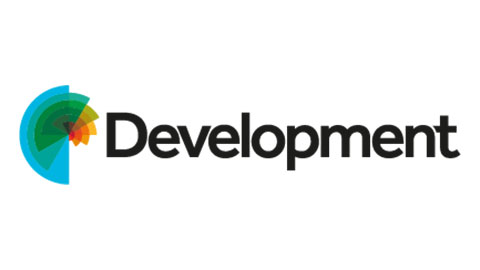
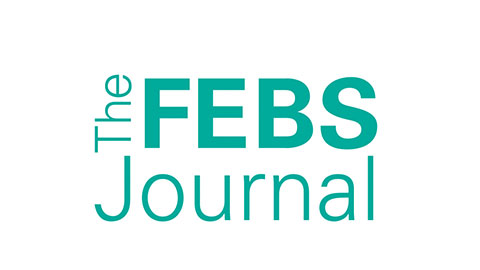
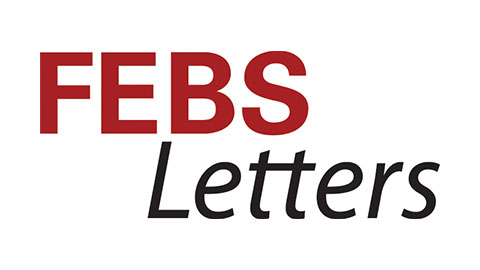
Media partners
Disease Models & Mechanisms, The Company of Biologists Journal
Development, The Company of Biologists journal
EMBO Journal, an EMBO Press journal
FEBS Journal, a FEBS Press journal
FEBS Letters, a FEBS Press journal
International Union of Biochemistry and Molecular Biology
Open Biology, a Royal Society journal
Bio Essays, a Wiley Online Library
Advanced Biology, a Wiley Online Library
Sponsorship opportunities
We offer a variety of event sponsoring possibilities, with the flexibility to select a set sponsorship package or combine individual sponsorship options to suit your event budget. Discounts are available for companies sponsoring multiple events at EMBL Heidelberg. View other conferences, or contact sponsorship@embl.de for further information.
If you are interested in becoming a media partner of this event, please visit our media partnerships webpage.
EMBL wishes to warn sponsors of EMBL conferences and courses of fraudulent schemes purporting to offer sponsorship opportunities on behalf of EMBL or affiliated with EMBL officials. One current scam campaign of which we are aware is conducted using the name ‘Judy Eastman’ (judy@gopcontact.a2hosted.com) and entails approaches to sponsors offering sponsorship opportunities on EMBL’s behalf. Please be kindly advised that all relevant communication regarding sponsorship of EMBL conferences, symposia and courses is handled by EMBL directly and is sent from an official EMBL account. EMBL does not work with any external providers on sponsorship acquisition.
Please also note that:
Suspicious communications purportedly from, for or on behalf of EMBL should be reported to EMBL at the following email address sponsorship@embl.de.
EMBO | EMBL Symposia promote scientific communication and collaboration in the European research area. They provide scientists with a platform to discuss and exchange ideas on forward-looking topics and new developments in the life sciences.
Topics emphasise upcoming developments and the interdisciplinary nature of related fields. Jointly funded and organised by EMBO and EMBL – and complementary to their respective courses, workshops, and conference programmes – the symposia promote scientific communication and collaboration.
All symposia are held in the EMBL Advanced Training Centre (ATC) in Heidelberg, Germany, or virtually.
Want to let others know you’re attending this event? Take a look at our shareable media and feel free to use them in your social media channels or presentations.
For on-site participants only.
The following industry workshops will be hosted by the sponsors of EMBO | EMBL Symposium: Organoids: modelling organ development and disease in 3D culture prior to the start of the event.
on Wednesday 18 October 2023, 14:30 – 15:30
In order to read the abstract of each workshop, please click on the corresponding links above.
Participation in this workshop is free of charge for registered on-site conference attendees. The available place is limited (first come, first served).
All registered conference attendees will receive an email with a registration link shortly.
All pre-conference workshops will take place simultaneously, therefore, please choose the one you would be interested in the most.
Date: 18 - 21 Oct 2023
Location: EMBL Heidelberg and Virtual
Venue: EMBL Advanced Training Centre
Deadline(s):
Abstract submission: Closed
Registration (On-site): Closed
Registration (Virtual): Closed
Organisers:
Contact: Lea Hohmann